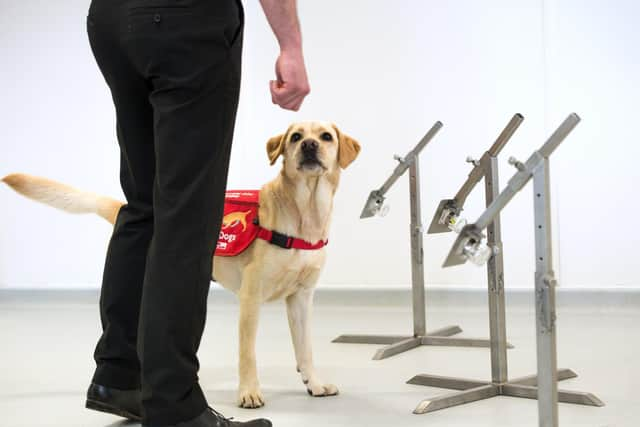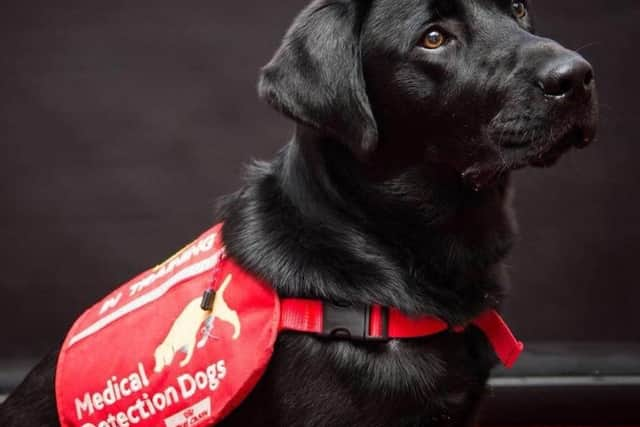People infected with coronavirus could soon by sniffed out by DOGS from a Milton Keynes charity
and live on Freeview channel 276
The dogs, which are already capable of detecting cancer, Parkinson's, low blood sugar and bacterial infections, are to be taught to detect the 'odour' of the virus.
Already they can smell subtle changes in the temperature of a person's skin to indicate when they have a fever.
Advertisement
Hide AdAdvertisement
Hide AdThe Medical Detection Dog team will be working in partnership with the London School of Hygiene and Tropical Medicine and Durham University, and already the charity's CEO Dr Claire Guest s optimistic the dogs will succeed .


She believes they could be trained in as little as six weeks.
Dr Guest said: “In principle, we’re sure that dogs could detect COVID-19. We are now looking into how we can safely catch the odour of the virus from patients and present it to the dogs.
“The aim is that dogs will be able to screen anyone, including those who are asymptomatic and tell us whether they need to be tested. This would be fast, effective and non-invasive and make sure the limited NHS testing resources are only used where they are really needed.”
Advertisement
Hide AdAdvertisement
Hide AdThe charity has spent years successfully researching the science behind dogs’ sense of smell. It has always adopted a rigorous, scientific approach to its work, and produced more than a dozen peer reviewed research papers which support its belief that each disease has its own unique odour.


Dogs searching for COVID-19 would be trained in the same way as those dogs the charity has already trained to detect other diseases like cancer – by sniffing samples in the charity’s training room and indicating when they have found it.
Once trained, dogs could be deployed in public spaces to detect people infected with the virus, or stationed at airports to identify infected travellers entering the country.
Professor James Logan, Head of Department of Disease Control at The London School of Hygiene & Tropical Medicine, said: “Our previous work demonstrated that dogs can detect odours from humans with a malaria infection with extremely high accuracy – above the World Health Organisation standards for a diagnostic.
Advertisement
Hide AdAdvertisement
Hide Ad“We know that other respiratory diseases like COVID-19, change our body odour so there is a very high chance that dogs will be able to detect it. This new diagnostic tool could revolutionise our response to COVID-19 in the short term, but particularly in the months to come, and could be profoundly impactful.”
Professor Steve Lindsay at Durham University said: “If the research is successful, we could use COVID-19 detection dogs at airports at the end of the epidemic to rapidly identify people carrying the virus. This would help prevent the re-emergence of the disease after we have brought the present epidemic under control.”